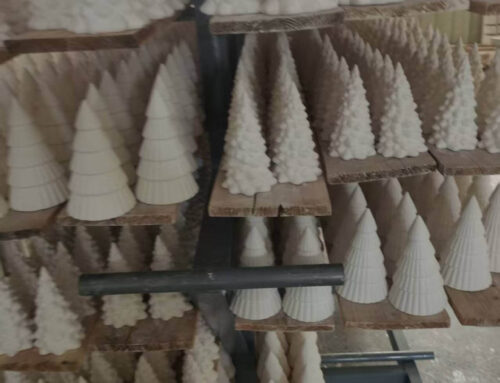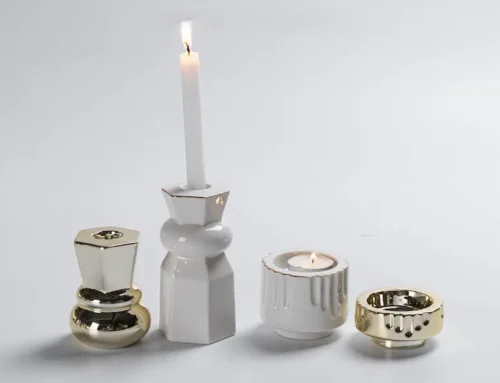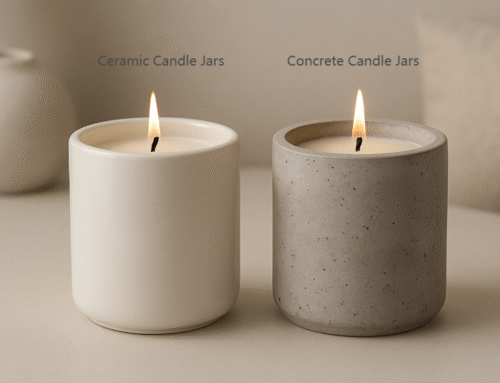Introduction to Daily-use Ceramic Products
Daily-use ceramics are ceramic products made from clay and other natural mineral rocks, processed and fired into glazed or unglazed items for everyday use. These can be divided into three categories:
- Food containers: e.g., plates, bowls, dishes, and cups for short-term food storage.
- Cooking utensils: e.g., cookware and casseroles for direct heat or electric cooking.
- Food packaging: e.g., bottles and jars for long-term food storage.

Common Quality Issues with Daily-use Ceramic Products
Daily-use ceramic products are essential household items, ranging from food storage containers and cooking tools to packaging solutions. While these products are widely used, they often encounter certain quality issues that can impact their functionality, safety, and durability. Below, we explore the most common problems faced in this category of ceramics.
-
Water Absorption Rate Issues
The water absorption rate is a critical indicator of the compactness and durability of ceramic products. A lower absorption rate generally equates to a longer product lifespan. However, high water absorption rates can lead to:
- Difficulty in cleaning due to residue buildup.
- Increased bacterial growth.
- Reduced structural integrity over time.
Products with higher water absorption rates often fail to meet quality standards, causing dissatisfaction among users.
-
Thermal Shock Resistance Problems
Thermal shock resistance measures the ability of ceramics to withstand rapid temperature changes without cracking or breaking. Poor thermal shock resistance can result in:
- Cracks or fractures when transitioning from hot to cold environments, or vice versa.
- Breakages during usage, posing safety risks to users.
This issue is particularly critical for ceramics used in cooking or heating applications.
-
Lead and Cadmium Migration
Heavy metal migration is a serious concern for daily-use ceramics. Lead and cadmium, often present in raw materials or decorative glazes, can migrate into food and beverages, leading to health risks. Causes of excessive migration include:
- Improper firing or glazing processes.
- Use of low-quality raw materials.
- Defects in glaze application, such as pores or incomplete coverage.
Mitigating these risks involves stringent quality control and adopting safer glazing techniques.
-
Microwave and Oven Suitability
Many daily-use ceramics are marketed as microwave or oven-safe. However, discrepancies in their actual suitability often arise due to:
- Residual water absorption leading to cracks during heating.
- Inadequate venting for trapped steam, causing breakage.
These issues highlight the need for thorough testing and accurate labelling to ensure consumer safety and satisfaction.
-
Industry Standards and Awareness
A significant portion of quality issues stems from a lack of adherence to industry standards. Common lapses include:
- Mislabeling products with incorrect specifications, such as misidentifying types of porcelain.
- Failing to meet both domestic and international quality benchmarks, like FDA standards for lead and cadmium migration.
Manufacturers must prioritise education and compliance with standards to improve product reliability.
-
Inefficient Inspection Processes
Inadequate inspection systems during production can lead to quality issues, including:
- Irregularities in material preparation, such as uneven glazing or substandard raw materials.
- Lack of testing for critical attributes like thermal shock resistance or absorption rates.
Implementing robust inspection protocols is essential for maintaining consistent product quality.
-
Raw Material and Process Control
Poor control over raw material quality and production processes can negatively affect ceramic products. Common problems include:
- Variations in the chemical composition of materials, impacting product strength and durability.
- Inefficient kiln operations, leading to uneven firing results.
To address these issues, manufacturers should standardize raw material preparation and optimize production workflows.
Addressing these common quality issues requires a comprehensive approach, including stringent raw material selection, adherence to industry standards, and robust testing protocols. By focusing on these areas, manufacturers can enhance the quality and safety of daily-use ceramic products, ensuring better customer satisfaction and market competitiveness.
Products Defects for Daily-use Ceramic
- Surface Imperfections
Ceramic items may exhibit defects such as pinholes, cracks, or glazing issues. These imperfections compromise the product’s appearance and durability.
- Uneven Colouration
Colour inconsistencies, such as patches, fading, or irregular patterns, detract from the product’s aesthetic value.
- Fragility
Poorly manufactured ceramics may have low strength, leading to frequent breakages and a shorter lifespan.
- Lead and Cadmium Contamination
Health concerns arise when harmful substances like lead or cadmium leach into food or beverages from ceramic products.
- Sizing Issues
Inconsistent sizing in ceramic items, such as plates or bowls, can disrupt their functionality and stacking capabilities.
Quality Issues in the Manufacturing Process
The root causes of quality issues in daily-use ceramic products can be traced back to several critical factors, ranging from insufficient understanding of standards to inadequate quality control measures. Below, we explore these causes in detail:
Lack of Awareness and Compliance with Standards
- Insufficient Knowledge of Standards: Many manufacturers lack a clear understanding of the standards applicable to their products. This gap leads to errors such as mislabeling products (e.g., misclassifying regular porcelain as Bone China).
- Misinterpretation of Requirements: Some enterprises misunderstand standard requirements or fail to recognise their importance, resulting in inconsistent production practices and non-compliant products.
- Failure to Implement Internal Standards: While some companies adopt internal control standards, these are often not aligned with national or international benchmarks, leading to subpar quality.
Inadequate Testing and Quality Assurance
- Limited Testing Capabilities: Few enterprises invest in robust testing facilities. This deficiency means that raw materials, production processes, and finished products are not thoroughly inspected.
- Lack of Comprehensive Procedures: Quality control processes are often rudimentary, relying on visual inspections rather than scientific methods to ensure consistency and safety.
- Neglect of Hygiene and Performance Metrics: Beyond aesthetics, critical health and safety factors, such as lead and cadmium migration limits, are often overlooked.
Raw Material and Production Deficiencies
- Uncontrolled Raw Material Quality: Variability in the composition of raw materials, particularly mineral-based inputs, can lead to inconsistencies in the final product.
- Improper Preparation Techniques: Inadequate raw material preparation, such as insufficient ball milling or poor de-ironing, negatively impacts the quality of ceramic products.
- Production Process Variations: Factors such as uneven firing temperatures and poor kiln atmosphere control result in issues like inconsistent water absorption rates and uneven glaze finishes.
Substandard Management Practices
- Traditional Business Models: Many companies still operate with outdated, family-run business structures that lack formalised quality management systems.
- Cost-Centric Procurement: Prioritising lower raw material costs over quality often leads to defective products, higher rejection rates, and increased long-term expenses.
- Insufficient Supplier Evaluation: Failing to vet and monitor raw material suppliers contributes to fluctuations in material quality.
Limited Industry Oversight
- Weak Regulatory Frameworks: A lack of stringent industry regulations allows substandard products to enter the market.
- Inconsistent Enforcement: Even where regulations exist, enforcement is often sporadic, leaving room for non-compliance.
Recommendations for Improvement
To address these root causes, enterprises must:
- Invest in comprehensive training to enhance understanding of relevant standards.
- Establish robust quality control systems, including advanced testing facilities.
- Ensure consistent supplier evaluations and implement strict raw material quality checks.
- Modernise management practices to adopt systematic, data-driven approaches to production.
- Advocate for stronger regulatory oversight and industry collaboration to raise quality benchmarks across the sector.
At Homey Ceramic, we pride ourselves on delivering high-quality ceramic products that meet stringent international standards. With a focus on safety, durability, and design excellence, our ceramics are crafted to perfection, ensuring peace of mind for your business and your customers.
Ready to elevate your ceramic collection? Partner with us for reliable, customized solutions tailored to your needs. Visit Homey Ceramic today to explore our extensive range of premium ceramic products and place your order.
Homey Ceramic’s Solutions and Preventive Measures
At Homey Ceramic, we understand the importance of addressing potential challenges before they escalate into significant issues. By implementing proactive solutions, we ensure our ceramic products maintain the highest standards of quality and reliability.
-
Investing in Equipment Maintenance
Our production facilities are equipped with state-of-the-art machinery, which is regularly inspected and maintained. Scheduled maintenance reduces the risk of breakdowns, ensuring uninterrupted production. Additionally, we invest in upgrading our equipment to adopt the latest technology, which enhances precision and efficiency in the manufacturing process.
-
Ensuring Thorough Quality Control
Quality control is at the heart of our operations. Every batch of products undergoes rigorous inspections at multiple stages of production, from raw material selection to the final packaging. Our dedicated quality assurance team uses advanced testing techniques to detect any defects or inconsistencies, ensuring that only flawless products reach our customers.
-
Proper Training and Communication for Workers
We believe that a well-trained workforce is the backbone of a successful manufacturing process. Homey Ceramic conducts regular training sessions for our employees to keep them updated on best practices and emerging industry trends. Clear communication channels are established to ensure that workers can easily address concerns or suggest improvements, fostering a culture of collaboration and accountability.
-
Efficient Supply Chain Management
To mitigate delays and disruptions, we have developed a robust supply chain management system. By partnering with reliable suppliers and maintaining adequate inventory levels, we ensure a steady flow of raw materials. Our team continuously monitors supply chain performance and implements contingency plans to address unforeseen challenges promptly.
-
Regular Design and Prototype Testing
Innovation is a cornerstone of our business. Before launching any new product, we conduct thorough design and prototype testing to evaluate functionality, aesthetics, and durability. By identifying potential issues during the development phase, we refine our products to meet and exceed customer expectations. This proactive approach minimises the risk of defects and ensures consistent quality across our range.
Why Choose Homey Ceramic for Your Ceramic Needs?
At Homey Ceramic, we understand the challenges businesses face in sourcing high-quality ceramics without delays. And you need to know how to choose dinnerware.Here’s why partnering with us is the smart choice:
- Reliable Supply Chain: We source top-grade raw materials and maintain robust supplier relationships to ensure seamless production.
- Flexible Production Capacity: Our advanced facilities and skilled workforce adapt to fluctuations in demand, delivering on time—even during peak seasons.
- Compliance Expertise: We adhere to all regulatory requirements, guaranteeing safe and durable products.
- Efficient Logistics: Our streamlined shipping processes minimise delivery delays, ensuring your products arrive when you need them.
Don’t let quality or timing issues hold you back. Contact Homey Ceramic today for customised, high-quality ceramic products you can rely on. Visit our website at homeyceramic.com or email us at sales@homeyceramic.com to discuss your needs.





